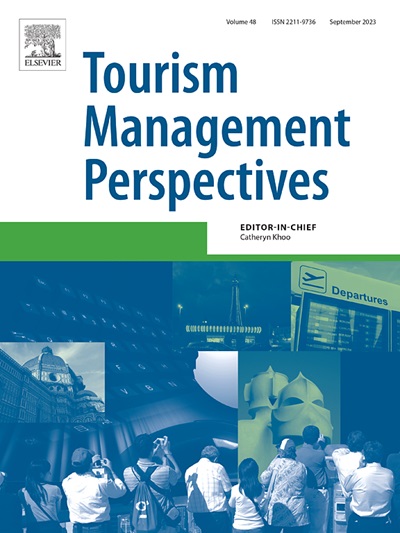热情好客的表象背后:操纵性和自私自利特征对酒店员工知识共享的影响
IF 6.9
2区 管理学
Q1 HOSPITALITY, LEISURE, SPORT & TOURISM
引用次数: 0
摘要
本研究探讨台湾五星级酒店员工黑暗人格特质(马基雅维利主义、自恋与变态)对知识隐藏的影响,并检视职场友谊的调节作用。数据在两个不同的阶段收集:在时间1 (T1),参与者完成了一份调查问卷,测量黑暗三合一特征、工作场所友谊和控制变量;两周后(T2),他们完成了第二份评估知识隐藏行为的问卷。共发放问卷720份,收到有效回复422份,回复率为58.61%。结果表明,马基雅维利主义和自恋与知识隐藏呈正相关,而精神变态与知识隐藏呈负相关。职场友谊会削弱马基雅维利主义与知识隐藏的正向关系,强化精神病态与知识隐藏的负向关系。然而,它并没有显著缓和自恋和知识隐藏之间的联系。最后提出了管理启示和对未来研究的建议。本文章由计算机程序翻译,如有差异,请以英文原文为准。
Behind the facade of hospitality: The impact of manipulative and self-serving traits on knowledge sharing in hotel employees
This study explores how the dark triad personality traits (Machiavellianism, narcissism, and psychopathy) affect knowledge hiding among five-star hotel employees in Taiwan, while also examining the moderating role of workplace friendship. Data were gathered across two separate stages: at Time 1 (T1), participants completed a questionnaire measuring dark triad traits, workplace friendship, and control variables; two weeks later (T2), they completed a second questionnaire assessing knowledge hiding behaviors. A total of 720 questionnaires were distributed, and 422 valid responses were received, yielding a response rate of 58.61 %. Results indicate that Machiavellianism and narcissism are positively associated with knowledge hiding, whereas psychopathy is negatively related. Workplace friendship was found to weaken the positive relationship between Machiavellianism and knowledge hiding and strengthen the negative relationship between psychopathy and knowledge hiding. However, it didn't significantly moderate the link between narcissism and knowledge hiding. The work concludes with managerial implications and suggestions for future study.
求助全文
通过发布文献求助,成功后即可免费获取论文全文。
去求助
来源期刊

Tourism Management Perspectives
Multiple-
CiteScore
15.60
自引率
3.40%
发文量
99
审稿时长
59 days
期刊介绍:
Tourism Management Perspectives is an interdisciplinary journal that focuses on the planning and management of travel and tourism. It covers topics such as tourist experiences, their consequences for communities, economies, and environments, the creation of image, the shaping of tourist experiences and perceptions, and the management of tourist organizations and destinations. The journal's editorial board consists of experienced international professionals and it shares the board with Tourism Management. The journal covers socio-cultural, technological, planning, and policy aspects of international, national, and regional tourism, as well as specific management studies. It encourages papers that introduce new research methods and critique existing ones in the context of tourism research. The journal publishes empirical research articles and high-quality review articles on important topics and emerging themes that enhance the theoretical and conceptual understanding of key areas within travel and tourism management.
 求助内容:
求助内容: 应助结果提醒方式:
应助结果提醒方式:


